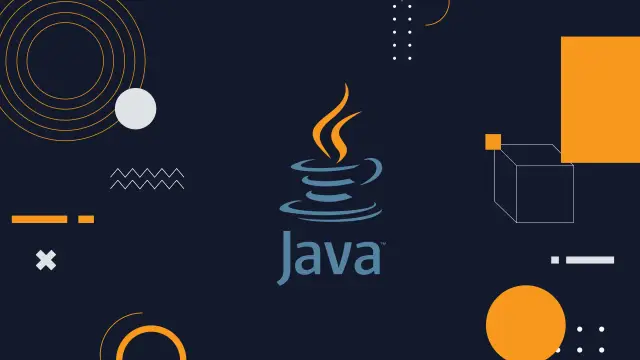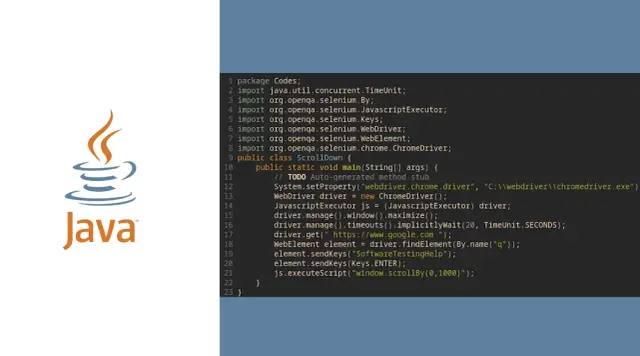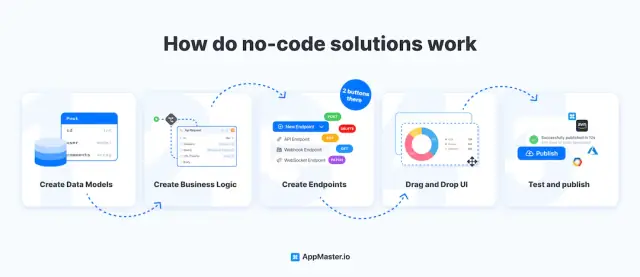What is Java? Definition, Meaning & Features
Learn the basics of Java in this comprehensive guide. Discover the definition, meaning, key features, and why it's widely used in software development.

Welcome to our article on the topic of Java! As someone interested in the world of technology, it's hard not to come across Java at some point. It's a programming language and computing platform that has significantly impacted the world of technology. It's one of the most popular programming languages in the world and powers many of the apps and websites we use daily.
Personally, I find Java's versatility to be particularly impressive. It's used in everything from mobile apps to scientific research. NASA even uses it to control the Mars rover! In the financial industry, Java is used to conduct trades on the stock market. This ability to be used across multiple domains and applications is what makes it so valuable.
Another aspect of Java that I find noteworthy is its security features. It is designed to be a secure programming language, allowing for the development of secure applications. This is an important aspect for me as someone who cares about online security.
Lastly, Java is known for its ease of use. Its simple syntax and object-oriented approach make it an excellent choice for beginners, while its depth and complexity allow more experienced programmers to create powerful and intricate programs. This makes it accessible to a wide range of users.
In this article, we'll dive into Java's definition, meaning, and features, including its versatility, security, and ease of use. Whether you're new to programming or have been doing it for years, this guide will provide an in-depth look into one of the most important programming languages in use today. So, without further ado, let's get started on understanding Java!
Introduction to Java
Java is a programming language and computing platform that Sun Microsystems first released in 1995. It is a class-based, object-oriented language that is designed to be portable, meaning that Java code can run on a wide variety of hardware and operating systems. Java is widely used for developing enterprise-level applications, mobile apps, video games, and other types of software. It is known for its "write once, run anywhere" philosophy, as Java code can be compiled to run on any platform that supports a Java Virtual Machine (JVM). Additionally, Java has a large and active ecosystem with a wealth of libraries and frameworks for developers.
Java is also known for its security features, as it is designed to be secure from the ground up with features such as memory management and automatic exception handling. Java's memory management feature, called the "garbage collector," automatically frees up memory that is no longer being used, reducing the likelihood of memory leaks. The automatic exception-handling feature makes it easier for developers to write robust code that can handle unexpected errors.

Another important feature of Java is its support for multithreading, which allows multiple threads of execution to run simultaneously within a single program. This makes it possible to perform various tasks simultaneously, such as running a background task while the user is interacting with the program. Overall, Java is a powerful, versatile, and mature programming language that is widely used in industry, open-source, and academia. Its portability, security, and performance make it an excellent choice for various projects.
Java terminology
There are several key terms and concepts associated with the Java programming language:
- Class: A class is a template or blueprint for creating objects. It defines the properties and methods of the object.
- Object: An instance of a class. Objects have properties and methods that are defined by the class.
- Method: A function or routine that can be called on an object to perform a specific task.
- Inheritance: The ability of one class to inherit properties and methods from a parent class. This allows for code reuse and the creation of more specialized classes.
- Interface: A set of methods that a class must implement. Interfaces are used to define a contract for a course to follow.
- Package: A grouping of related classes and interfaces. Packages are used to organize code and prevent naming conflicts.
- JRE (Java Runtime Environment): The software environment in which Java applications run. It includes the JVM and a set of libraries, and other files.
- JDK (Java Development Kit): A set of tools for developing Java applications, including the JRE, a compiler, and other tools.
- JIT (Just-In-Time) Compiler: A feature of the JVM that compiles Java bytecode into machine code at runtime. This improves the performance of Java applications.
- Garbage Collection: A feature of the JVM that automatically frees up memory that is no longer being used by a program. This helps prevent memory leaks and other memory-related issues.
Primary/Main features of Java
Java is a popular, general-purpose programming language developers have widely adopted for creating various applications. Some of the main features of Java that make it an excellent choice for developers include:
- Object-Oriented Programming: Java is a class-based, object-oriented programming language, which means that it is based on the concept of objects, classes, and inheritance. This makes it easy to create modular, reusable code that can be easily understood and maintained by other developers.
- Platform Independence: Java code is compiled into an intermediate format called bytecode, which can be run on any platform with a Java Virtual Machine (JVM) installed. This feature, known as "write once, run anywhere" (WORA), allows developers to write code once and run it on multiple platforms without making any changes.
- Memory Management: Java's automatic memory management and garbage collection features free up a program's memory that is no longer being used, helping to prevent memory leaks and other memory-related issues. This makes it easier for developers to write robust code that can handle unexpected errors.
- Multithreading: Java's support for multithreading allows multiple threads of execution to run simultaneously within a single program. This makes it possible to perform multiple tasks at the same time, such as running a background task while the user is interacting with the program.
- Exception Handling: Java's built-in exception handling mechanism makes it easy for developers to handle errors and exceptions in their code. This feature enables developers to write more robust and reliable code.
- Security: Java is designed to be secure from the ground up, with features such as the Java sandbox, which isolates untrusted code from the rest of the system, and the Security Manager, which enforces security policies on a Java application.
- API and Libraries: Java has a rich API and vast open-source libraries that provide developers with a wide range of functionality. These libraries and frameworks make it easier for developers to perform common tasks, such as connecting to a database, handling XML, and more.
- Community and Ecosystem: Java has a large and active developer community, which means that there are plenty of resources, tutorials, and forums available to help developers learn and use the language. Additionally, the active ecosystem includes various frameworks and libraries that developers can use to build their applications.
All these features make Java a powerful, versatile, and mature programming language that is widely used in industry, open-source, and academia. Its portability, security, and performance make it a great choice for various projects.
Which language is used for Java?
Java is a programming language that is used to write software applications. It is not written in any other language. Java code is compiled into bytecode, which can be run on any platform with a Java Virtual Machine (JVM) installed.
Java is influenced by other programming languages like C++ and Smalltalk, and it's designed to be simple, object-oriented, and portable across different platforms. It was created by James Gosling at Sun Microsystems (which has since been acquired by Oracle) in the early 1990s as a platform-independent, interactive television system.
What is Java used for?
Java is a universal programming language that is widely used to create various types of software applications. It is commonly used to develop enterprise-level applications such as customer relationship management systems, enterprise resource planning systems, and supply chain management systems. It is also used for developing android mobile applications, web applications, web servers and application servers, games, scientific applications, financial applications, and many more. Additionally, Java's vast libraries and frameworks make it easy for developers to build applications that can interact with databases, handle XML, and perform other common tasks.

Java is a powerful and widely-used programming language that can be used to create a wide variety of software applications. However, it does require a certain level of programming expertise and can be time-consuming to develop and maintain. In contrast, no-code platforms allow users to create software applications without writing any code. This can be a great option for those who may not have programming experience or for those who want to create a prototype quickly without having to invest much time in coding. Additionally, no-code platforms often have a user-friendly drag-and-drop interface, making it easy for users to create and test their applications without understanding the underlying code. This can be a more efficient solution where the benefits of having a full-fledged Java application may not outweigh the costs and complexity of development.
Conclusion
In conclusion, Java is a versatile and powerful programming language that has significantly impacted the world of technology. Its ability to be used across multiple domains and applications, its security features, and its ease of use make it a valuable choice for developers of all levels, from mobile apps and websites to scientific research and financial trading; Java powers many of the tools and systems that we rely on daily.
With its "write once, run anywhere" philosophy and a large ecosystem of libraries and frameworks, Java continues to be a popular choice among developers. Understanding the key terms and concepts associated with Java, such as classes, objects, methods, inheritance, and interfaces is important for anyone interested in learning the language.





